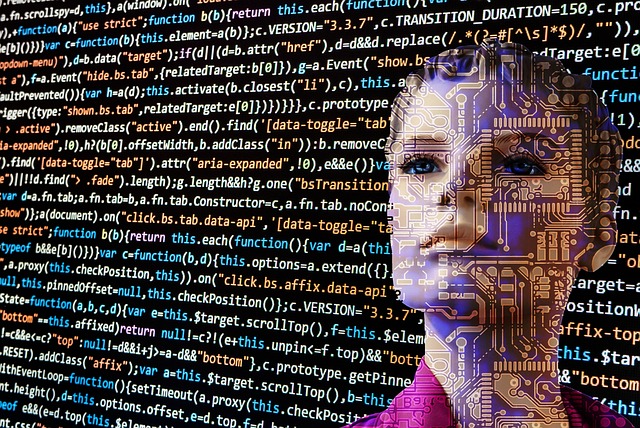The ai art revolution has fundamentally transformed visual creativity, empowering artificial intelligence systems to synthesize remarkable imagery that challenges conventional artistic paradigms. These sophisticated platforms decode textual instructions and manifest photorealistic visuals within moments, democratizing creative expression across global communities while raising profound questions about digital ethics and technological responsibility https://cortexlab.app/ai-clothes-remover-technology-overview. Understanding both the extraordinary potential and critical challenges inherent in these systems becomes essential for navigating this rapidly evolving landscape.
Contemporary developments in ai art technology have spawned various controversial applications, including nude ai systems that manipulate existing imagery without consent, highlighting the urgent need for comprehensive ethical frameworks and regulatory oversight. These emerging challenges underscore the importance of balancing technological innovation with fundamental respect for human dignity and personal autonomy in digital spaces.
Examining AI Art Technology
Core Technology Architecture
AI art embodies a groundbreaking methodology in visual content synthesis where artificial intelligence systems craft images, illustrations, and digital artwork through sophisticated computational processes. These platforms utilize advanced generative neural architectures trained on comprehensive datasets containing millions of visual specimens accompanied by detailed descriptive annotations and artistic classifications.
Modern ai art systems exhibit remarkable competency, interpreting complex creative directives and producing visually captivating outputs spanning multiple artistic genres, from hyperrealistic photography to surreal abstract expressions that demonstrate profound comprehension of aesthetic fundamentals and cultural significance.
Technical Implementation and Processing
The computational foundation of ai art employs state-of-the-art neural network configurations including diffusion architectures, transformer models, and adversarial generative networks. These systems experience intensive training regimens, absorbing intricate correlations between visual elements, artistic methodologies, and linguistic interpretations through comprehensive analysis of massive image repositories.
AI art synthesis encompasses multiple sophisticated computational phases: advanced semantic processing interprets user requirements, pattern recognition algorithms identify pertinent visual components, and generative mechanisms construct original imagery fulfilling designated criteria while preserving artistic integrity and visual coherence.
Professional Applications and Problematic Uses
Professional ai art utilization has revolutionized numerous creative industries, enabling concept artists to swiftly develop groundbreaking visual prototypes, facilitating graphic designers in exploring varied aesthetic paradigms, and permitting marketing specialists to generate specialized visual content efficiently while minimizing production expenses.
Educational institutions strategically deploy ai art for producing engaging educational materials, historical reconstructions, scientific diagrams, and immersive learning environments that amplify student comprehension across various scholarly disciplines.
Unfortunately, identical technological capabilities also support malicious implementations, including systems specifically engineered to manipulate personal photographs without explicit permission, potentially generating inappropriate content that infringes upon individual privacy and dignity.
Technical Excellence and Ethical Dilemmas
Technological Achievements
AI art technology demonstrates exceptional progress in artificial intelligence development, exhibiting sophisticated understanding of visual arrangement, artistic legacy, and creative interpretation across diverse movements. The accessibility revolution proves extraordinary – these instruments have dismantled conventional barriers to visual creation, enabling individuals to generate professional-caliber artwork independent of formal artistic instruction.
Computational efficiency defines contemporary ai art systems, producing high-resolution, professionally-crafted imagery within moments compared to extensive durations required for traditional artistic production processes. Technical sophistication emerges through comprehending complex illumination physics, sustaining stylistic uniformity, and seamlessly merging historical traditions with modern innovations.
Ethical Challenges and Social Consequences
Despite remarkable technological accomplishments, ai art technology presents substantial ethical concerns demanding urgent attention from global policymakers and human rights advocacy groups. Non-consensual image modification represents the most concerning application, where existing photographs experience unauthorized alterations, potentially producing intimate or misleading content that fundamentally violates personal sovereignty.
Gender-targeted exploitation of specific ai art applications significantly intensifies these ethical problems. Technologies designed predominantly to manipulate women’s imagery reflect systematic patterns of digital abuse, generating unprecedented opportunities for psychological damage and reputational destruction with potentially catastrophic consequences.
Information authenticity degradation constitutes another critical societal challenge as ai art quality achieves near-perfect standards. Differentiating between authentic and artificially generated content becomes increasingly challenging, systematically eroding public trust and facilitating sophisticated propaganda campaigns.
Legal Frameworks and Global Regulation
International Regulatory Environment
Legal frameworks addressing controversial ai art applications exhibit significant diversity across international jurisdictions, reflecting varying cultural perspectives and regulatory philosophies. United States governance operates primarily through state-level statutes, with California, Texas, New York, and Virginia implementing comprehensive legislation targeting deepfakes and non-consensual intimate imagery.
European Union approaches emphasize extensive user safeguards through GDPR mechanisms and Digital Services Act requirements, establishing definitive platform responsibility standards and comprehensive individual rights concerning ai art content generation, circulation, and elimination procedures.
Asia-Pacific territories including Japan, South Korea, Australia, and Singapore have introduced specialized legislation specifically targeting digitally manipulated intimate content, recognizing distinctive challenges presented by advanced ai art technology.
Legal Consequences and Enforcement
Individuals engaging with problematic ai art applications encounter substantial legal vulnerability across multiple jurisdictions. Criminal prosecution becomes increasingly prevalent in regions with applicable legislation, particularly for generating or distributing non-consensual intimate imagery through ai art platforms.
Civil liability constitutes significant financial exposure, with victims successfully securing substantial monetary awards for emotional trauma, privacy infringements, and reputational harm. Professional repercussions frequently complement legal sanctions, with employers and institutions implementing rigorous policies strictly forbidding controversial ai art utilization.
Protecting Human Dignity and Digital Rights
Fundamental Autonomy Principles
AI art advancement must prioritize fundamental human dignity and personal autonomy principles that establish the ethical bedrock of responsible technological innovation. Every individual deserves complete authority over their digital representation, including comprehensive control over how their appearance and identity are depicted in generated or manipulated imagery.
Explicit informed consent becomes critically essential when ai art incorporates personal imagery or recognizable likeness. Generating modified or intimate content necessitates clear, documented, and revocable authorization rather than presumed or implied permission from affected individuals.
Building Comprehensive Protection Systems
Addressing ai art challenges requires coordinated multi-stakeholder strategies that effectively balance technological innovation with robust human rights protection mechanisms. Technical safeguards embedded directly into generation systems provide essential primary defense, including sophisticated detection algorithms, content verification protocols, and integrated ethical constraints preventing harmful deployments.
Platform responsibility measures must effectively prevent misuse while supporting legitimate creative applications. This necessitates advanced content moderation systems, transparent policy implementation, and productive collaboration with law enforcement agencies when violations materialize.
Educational programs promoting comprehensive digital literacy ensure users comprehend both extraordinary creative potential and serious implications of ai art systems, including legal vulnerabilities, ethical responsibilities, and potential consequences affecting individuals and communities extensively.
Responsible Innovation Pathway
The developmental trajectory of ai art technology fundamentally relies on our collective dedication to balancing transformative creative capabilities with steadfast respect for human rights, dignity, and consent. Technological progress must consistently align with social responsibility, ensuring these powerful creative tools enhance human expression while protecting individual autonomy in digital environments.
Achievement requires sustained collaboration between diverse stakeholders, continuous refinement of technical and regulatory approaches, and unwavering commitment to positioning human welfare at the center of technological development processes, ensuring that ai art realizes its extraordinary creative potential while safeguarding vulnerable populations from exploitation.







